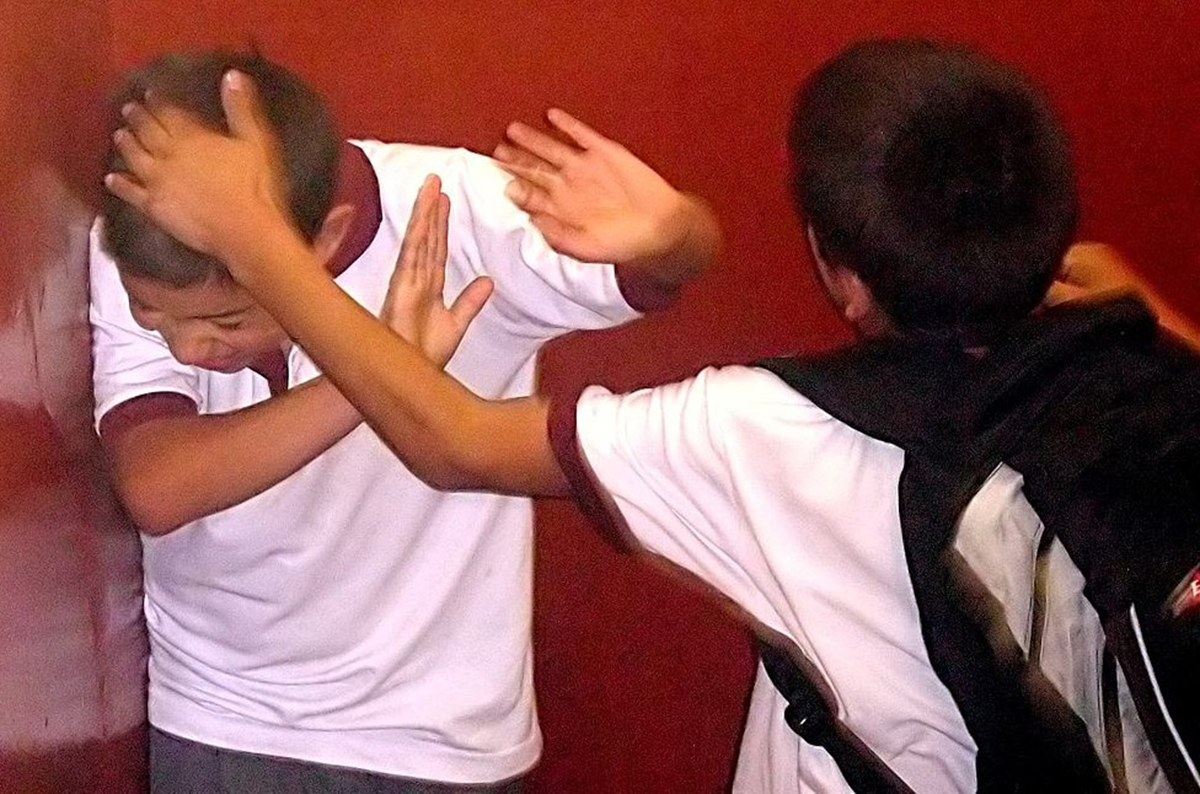Table of Contents
You might feel very protective and have the urge to ensure that the perpetrator or perpetrators get punished, but bullying is one case in which your child's mental health matters even more than justice. For that reason, have a detailed conversation with your child before you approach the other adults involved (teachers, sports coaches, neighborhood parents, etc).

Ask your child how you can help. In some cases, a mediated bully-victim conversation can be helpful, but in other cases that can make the situation much worse. Changing seating arrangements, having the bully (not the victim, who should not be punished for being bullied) moved to another class, or a school program that tackles the general wrongness of bullying can all help.
Once you have discussed your action plan with your child, you can then talk to the teacher or other relevant people. In the best-case scenario, they will actively work with you to stop the bullying. If this doesn't happen, you may have to be a powerful advocate for your child and go higher up, by talking to the principle for instance. When even this doesn't help, removing your child from the bullying situation may be the only answer — but don't worry about that yet, as there is a much greater awareness of the harmful impact of bullying than when you went to school.
After the bullying stops, the harmful effects won't go away, so continue working to increase your child's self-confidence. One adult, bullied as a child, recommends sports that teach self-defense skills, like Judo. Therapy may also help. Most importantly, keep being there for your child and make providing a loving home environment your number one priority.
If Your Child Is The Bully
You might be horrified if you find out that your child has been bullying others. Bullying is certainly wrong, but your child is likely to get plenty of negative feedback and lectures from teachers and others if they have engaged in bullying behavior. What your child needs from you is compassion, and the skills they need to interact with peers more positively.
You'll benefit from finding out why your child ended up bullying others. What it to fit in with a particular crowd? To prevent being bullied themselves? Or could they be facing something else they are not talking about? Often, bullying behavior is the result of immense stress, abuse, very low self-confidence, or mental health issues.
Victims of bullying may need professional mental health support to deal with the impact of bullying, but the perpetrators of bullying require support as well. Therapy is a great option.
See Also: Spanking Makes Kids Violent And Poorly Behaved
Meanwhile, you can make sure your child knows that what they did was wrong — and ask them how you can help make sure they never feel the need to do anything like that again. Talk to your child in a calm and non-confrontational manner. Aim to understand the reasons behind their behavior. Sometimes children bully others because they are being bullied themselves, they're experiencing personal problems, or they don't understand the harm they're causing.
Model healthy peer interactions and friendly behavior, and talk about civil rights. If possible, ask your child if you can help them apologize to the victim, by writing a letter or setting up a meeting. This can be beneficial for both parties. Make sure your child knows that bullying is unacceptable. Set clear consequences for continued bullying behavior, and follow through with them consistently.
Help your child understand the pain and hurt they are causing. This could involve discussing how the victim might feel or asking how they would feel if the roles were reversed. Like victims of bullying, perpetrators may welcome the chance to have a fresh start. Children who bullied others as the result of peer pressure are especially likely to do well in a new environment, away from the group they bullied with and the teachers who will see them as problem children now.
- Photo courtesy of Working Word by Flickr : www.flickr.com/photos/workingword/4663156174
- Photo courtesy of Diego Grez by Wikimedia Commons : en.wikipedia.org/wiki/File:Bullying_on_Instituto_Regional_Federico_Err%C3%A1zuriz_(IRFE)_in_March_5,_2007.jpg


Your thoughts on this